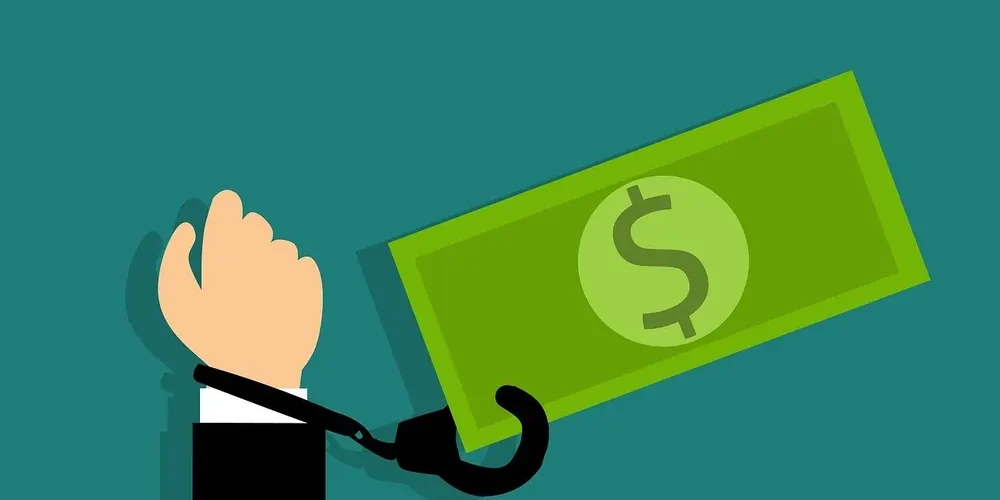Debt Collection Kazakhstan: The Guide to Laws, Rights & Best Practices
Пост обновлен 7 октября, 2025
Автор статьи: Daniyar Abdi | LinkedIn
Debt collection in Kazakhstan demands understanding its stringent legal framework. The landmark Law «On Collection Activity,» implemented in 2017, established clear rules. This created a structured system that balances the rights and obligations of all parties. This guide provides an authoritative deep dive into this ecosystem.
Businesses and professionals can use this guide to acquire the fundamental knowledge required for handling debt collection in Kazakhstan. It explains how to mitigate legal risks and ensure regulatory compliance. Understanding these rules is mandatory for any successful debt recovery in the country.
The Legal Foundation of Collection Activity in Kazakhstan
The cornerstone of all debt collection efforts in the Republic of Kazakhstan is the Law “On Collection Activity.” This legislation fundamentally transformed the previously less-regulated industry, establishing clear parameters and robust oversight.
What Constitutes «Collection Activity» Under Kazakh Law?
According to Article 1 of the law, collection activity is explicitly defined. It includes:
- Pre-court recovery: Actions aimed at settling outstanding debts before initiating formal litigation.
- Settlement of specific debts: This primarily involves debts arising from bank loan agreements or micro‐loan agreements.
- Information gathering: The process of collecting and verifying data related to the debtor and the outstanding obligation.
Crucially, this legal definition separates formal collection agency work from informal requests for payment by a creditor. Therefore, any systematic recovery effort falling under these categories must adhere to the law’s strictures.
Who Can Legally Conduct Debt Recovery in Kazakhstan?
This is one of the most critical aspects of the regulatory framework. According to unequivocal law, only officially registered legal entities may lawfully conduct collection activity. These entities must be included in the state Register of Debt Collection Agencies maintained by the National Bank of Kazakhstan.
- Verification is Key: Creditors must always verify a potential partner’s registration status. Utilizing an unregistered entity exposes both the creditor and the «collector» to significant legal penalties.
- Individual Prohibition: Individuals are expressly forbidden from characterizing themselves as or performing the duties of professional collectors.
Permitted Methods and Standards of Conduct for Collectors
The law meticulously outlines how registered agencies can interact with debtors, ensuring that the debt collection process remains professional and non-abusive.
Approved Channels of Communication
Collection agencies are permitted to contact debtors (both individuals and legal entities) through several defined methods:
- Telephone calls
- In-person visits
- Written or postal communication
- Mobile text messages (SMS)
- Electronic messages (email)
- Communication via the Internet (through official channels)
Critical Restrictions on Time, Frequency, and Manner
To prevent harassment, the law imposes clear limitations:
- Time Restrictions: All contacts must be made strictly between 08:00 and 21:00 on weekdays (Monday to Friday). Contact outside these hours is prohibited.
- Frequency Limits: There are explicit caps on how often certain actions can occur. For example, the law states that personal visits or meetings cannot exceed three times per week.
- Identification Requirements: Upon each contact, agents must properly identify themselves by stating the agency’s name, the name of the creditor on whose behalf they are acting, and their own official identity. Any form of misleading or deceptive representation is strictly forbidden.
A Clear List of Prohibited Actions and Unfair Practices
The legislation provides a non-exhaustive list of banned conducts to protect debtors from predatory tactics. Key prohibited actions include:
- Demanding repayment in the form of non-monetary property, except in specific cases allowed by other laws.
- Disclosing confidential information or business secrets beyond what the law explicitly permits.
- Knowingly using misleading information about the amount, nature, or existence of the debt.
- Making unauthorized disclosures of debt information to third parties (e.g., family, employers) without the debtor’s prior consent.
- Using threats, intimidation, or force.
Expert Insight:
«The list of prohibited practices in Kazakhstan’s collection law is notably comprehensive. For international creditors, it’s vital to understand that tactics which might be marginally acceptable in other jurisdictions could constitute a serious administrative offense in Kazakhstan. The emphasis is on factual, transparent, and respectful communication. Before engaging a local agency, creditors should conduct thorough due diligence, including a check of the National Bank’s register and a review of the agency’s internal compliance protocols to ensure they align with these strict conduct standards.»
Rights and Obligations of Debtors in Kazakhstan
The law provides debtors with a robust set of protections, creating a balanced framework for the debt collection process.
The Empowered Debtor: Understanding Your Rights
A debtor in Kazakhstan has the right to:
- Debtors have the right to full information. This includes complete details about the collection agency, the exact debt amount, and a full breakdown of principal, interest, and penalties.
- Challenge the Debt: Formally contest the claim, either in full or in part, including through the court system.
- Request Restructuring: Apply for changes to the terms of the original loan or microloan agreement under conditions defined by law.
- File formal complaints with the National Bank of Kazakhstan for any illegal actions by a collection agency.
The Responsibilities of the Debtor
Conversely, debtors also have legally binding obligations. They must:
- Provide Updates: Inform the collection agency of any changes to their residence, legal address, identity documents, or contact information.
- Debtors must disclose accurate financial data. This includes their income, expenses, and property that could satisfy the debt.
- Debtors must respond to repayment proposals within 15 working days. They should indicate which terms are suitable for their situation.
The Step-by-Step Process: From Pre-Court Settlement to Judicial Enforcement
Mandatory Pre-Court Procedural Steps
The Kazakh law emphasizes pre-court settlement as a primary mechanism for resolving disputes. Before initiating litigation, the following steps are required:
- Formal Notice: The creditor must first provide the debtor with a formal notice of default.
- Agency Proposal: The collection agency must then inform the debtor of any proposed changes to the repayment schedule or terms.
- The debtor may submit a written application to change their loan agreement terms.
- The creditor must conscientiously consider the request and reply formally within legal deadlines.
Judicial Collection as a Last Resort
If the debtor fails to respond or a settlement cannot be reached, the creditor may escalate the matter to court. This legal action must follow the procedures outlined in Kazakhstan’s Civil Procedural Code. A successful court judgment will lead to enforcement, which can include:
- Seizure of property
- Attachment of bank accounts
- Other enforcement measures carried out under strict judicial oversight.
Regulatory Oversight and Penalties for Non-Compliance
The Role of the National Bank of Kazakhstan
The National Bank of Kazakhstan regulates all debt collection activities. Its critical functions include:
- Maintaining the official Register of Debt Collection Agencies.
- Monitoring and ensuring compliance with the Law «On Collection Activity.»
- Investigating complaints filed against collection agencies.
- Imposing administrative sanctions for violations.
Sanctions for Violations: A Serious Deterrent
Violations of the collection rules are not taken lightly. Infractions such as improper contact frequency, misleading debt claims, or unauthorized disclosure of secrets can lead to:
- Substantial administrative fines (scaled according to the size of the enterprise as per the Code on Administrative Offenses).
- Suspension of activities.
- Removal from the state Register, effectively shutting down the agency’s operations.
External Authority Reference: For the most current information on registered agencies and regulatory updates, always refer to the official website of the National Bank of Kazakhstan.
Practical Advice for Creditors Pursuing Debt Recovery in Kazakhstan
For businesses seeking to recover debts, adherence to the following best practices is paramount for success and compliance.
- Prepare Meticulous Documentation: Before initiating any debt collection process, ensure all paperwork is flawless. This includes the original loan or credit agreement, all amendments, and irrefutable proof of default.
- Vet collection agencies thoroughly. First, verify their official registration and standing with the National Bank’s Register.
- Maintain Transparent Records: Keep detailed, timestamped records of every communication with the debtor. This provides a crucial audit trail in case of any dispute.
- Embrace a willingness to negotiate. Be prepared to offer reasonable restructuring plans, especially for microloans or when the debtor shows a genuine willingness to pay.
- Use Judicial Options Responsibly: Treat court action as a last resort. Always ensure that any litigation and subsequent enforcement actions fully comply with procedural requirements and time restrictions.
Debt Collection Kazakhstan | FAQ
The primary law is the Law of the Republic of Kazakhstan “On Collection Activity” (No. 62-VI of 6 May 2016), which came into full force in June 2017. This legislation sets out the entire framework for collection agency work, rights, obligations, and penalties.
No, absolutely not. Only registered legal entities listed in the National Bank’s official Register may perform debt collection in Kazakhstan. Unregistered entities face severe legal penalties.
As a debtor, you have the right to be treated according to the law. This includes restrictions on contact times and methods. If an agency breaks these rules, you can file a formal complaint with the National Bank of Kazakhstan.
First, verify the agency’s registration with the National Bank. Also, confirm its compliance program understands permitted and prohibited collection methods.
Yes, the law strongly encourages pre-court settlement. The process involves formal notices and provides the debtor with a legal right to submit a written application for restructuring, which the creditor must consider within set timelines.
Conclusion: Mastering Compliant Debt Collection in Kazakhstan
Successfully navigating debt collection in Kazakhstan demands diligence and expertise. It requires strict adherence to a well-defined legal framework. The enactment of the Law «On Collection Activity» has fundamentally standardized this field. This law establishes transparency by protecting both creditor and debtor rights. For businesses in Kazakhstan, understanding these rules is essential for effective risk management and operational integrity.
More information by this link.
Читать другие посты из категории: Финансы.
Достопримечательности Алматы ⬅️





